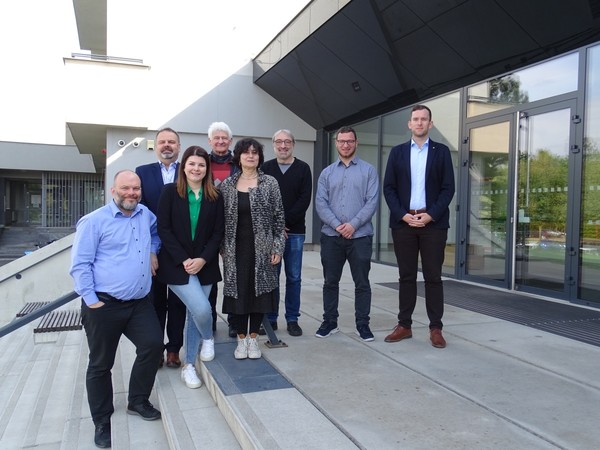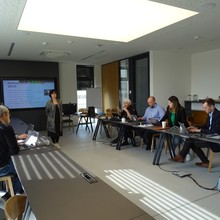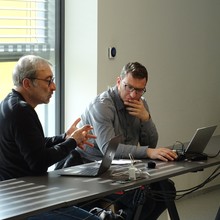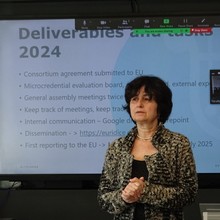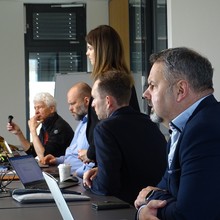A Master’s programme which will equip students with digital competences, legal knowledge, and related societal knowledge is being created thanks to cooperation between UP and universities from Naples, Innsbruck, and Amsterdam, as well as other institutions in the Euridice project (European Inclusive Education for Digital Society, Social Innovation and Global Citizenship). Euridice representatives met at the UP Faculty of Law, the guarantor of the new joint study programme, in order to give it a specific form and content.
“Our goal is for its graduates – who will occupy leading positions in business, politics, and society – to understand the digital society in a complex way. They should understand for example what artificial intelligence is and how it works, and at the same time, they should be able to perceive its impact on society,” explained Anna Bon of Amsterdam’s Vrije Universiteit, the project’s main co-ordinator.
The English-language version of the course will be taught in hybrid form. This will allow students to gain knowledge from top experts at several universities; other institutions and even small- and medium-sized businesses which will offer internships are also connected to the programme. “Most universities have specific orientations, so it might be difficult for them to prepare ((and be accredited for)) an interdisciplinary study programme with multi-faceted orientation. Connecting more institutions allows a single study programme to acquire top experts from areas such as information technologies, law, and philosophy at the same time,” said Hans Akkermans of AKMC, a company connected to the Euridice project. “Our university will engage for example experts in statistics and data science as well as sociology,” said Emiliano Grimaldi, Euridice project co-ordinator at the University of Naples Federico II.
One of the key themes of the three-day meeting at Palacký University was therefore to put together an interdisciplinary teaching team. “Together, we also defined the themes that we’ll be discussing, our ultimate goals, and the competences which programme graduates should have,” Bon added.
The Euridice project was officially launched on 1 January 2024 and is set to last until December 2027. To a great extent, it comes out of existing ties in the Aurora European universities network, specifically the latter’s Digital Society and Global Citizenship thematic community. “One could say that the new programme is a spin-off of the Aurora 2030 consortium and epitomises the basis of which such cooperation should bring: to transform universities and society through education,” said Thomas Baumgartner of the University of Innsbruck.
The Euridice project originally began as a joint-educational module, but gradually evolved into a complex Master’s programme, which brings increased demands on technological support and also on the accreditation processes. “We have partly made use of the European Commission’s Digital Europe plan to come up with the financing. In the future, we will try to connect all the universities in the Aurora partnership,” said Michal Malacka, UP Vice-Rector for Strategy and External Relations.
“We’re very proud that Palacký University can be a part of this project and is involved in preparing this prestigious study programme, in which such hard-working academics and experts are taking part. Our team is made up of academics from the Faculties of Law and Science, and is supported administratively by the Aurora Office at the UP Rector’s Office. International educational activities do not only benefit UP, its reputation and prestige, but especially multicultural exchange, the development of intercultural professional and personal competences and inspirations, and is a benefit which is mutual, enriching all parties,” said Markéta Šemberová, the coordinator of the Euridice project and Aurora Education Developer at UP.
Maxim Tomoszek, UP FL Vice-Rector for Bachelor’s and Master’s programmes, added, “For the Faculty of Law, this is both a synergetic activity of our accredited doctoral programme Law and Digital Technologies, and at the same time a unique opportunity to work together with top workplaces abroad. Our shared work on the structure of the programme, the aims of individual modules, and the profile of what a graduate should have has been very inspiring.”
